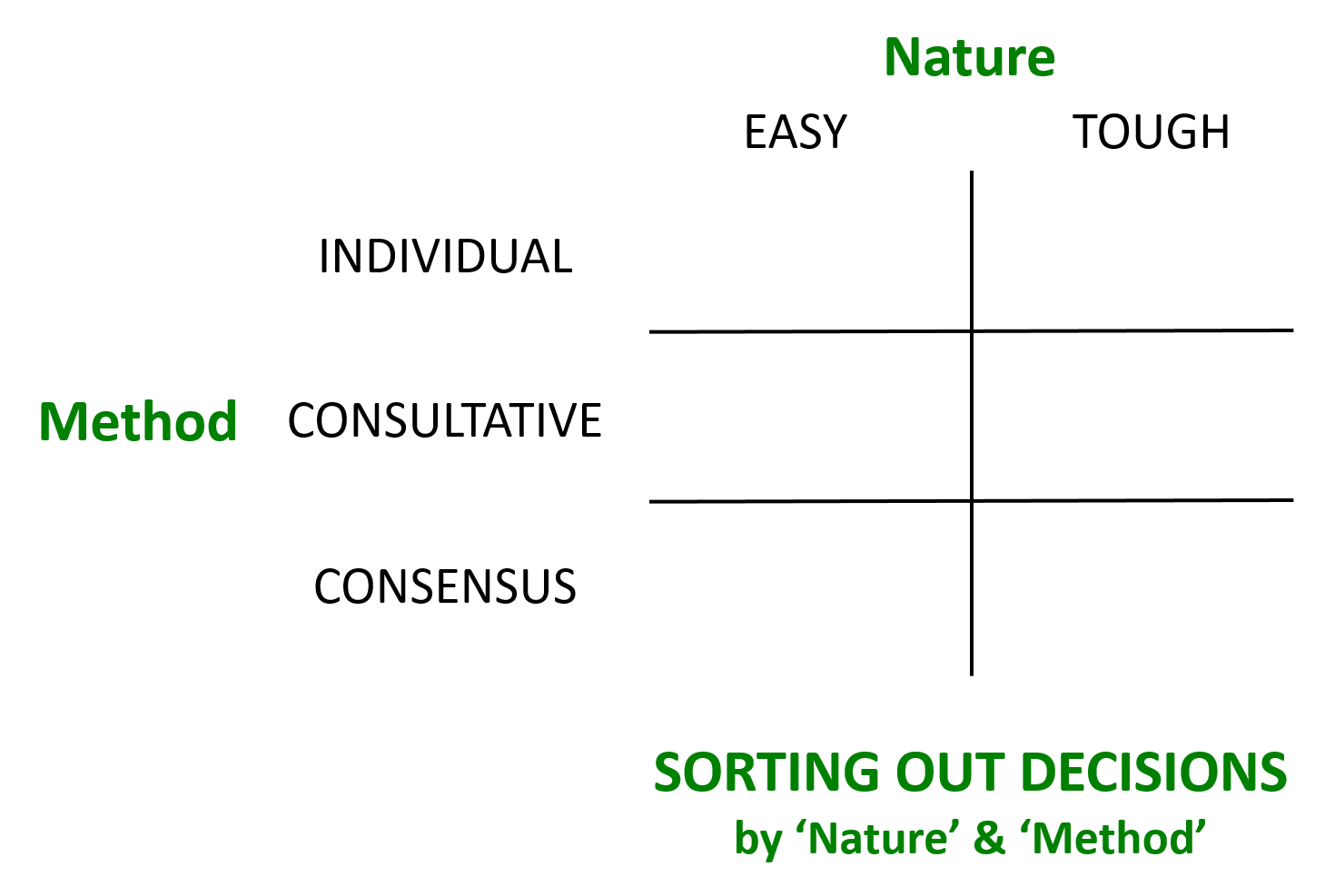On the Nature of Decisions
Every one of us makes numerous decisions every day.
Many of our decisions are small, like - “What shirt should I wear today?” Some of our decisions are larger with more serious consequences, like – “How should I go about firing this employee?”
Some decisions trigger strong and challenging emotional responses, like – “Should I tell this person my true feelings?”
Other decisions involve trade-offs between goals, like – “Should I stick to my diet or eat that chocolate-dipped ice-cream cone?” 1 [Often these decisions pit short-term rewards against long-term rewards.]
Some decisions involve massive risks involving money, reputation, relationships, etc.
Decisions involve the study of past and present data and the forecasting of future outcomes.
This is just a sampling of the ways you can sort decisions before you make them. If you take the time, and it will be a surprisingly large amount of time, to analyze the decisions you make in a 24-hour day then you will discover the wide variety of decisions you make. You will be able to consider the ‘nature’ of your decisions and you will be able to categorize your decisions by their ‘nature’ and confirm the frequency of each major type of decision.
But – odds are you will never do that 24-hour exercise.
Perhaps, you will buy into sorting your decisions into two types/natures: easy decisions & tough decisions? This simple sorting will be a very good first step toward understanding then planning the types of decisions you face regularly.
On the Method of Decisions
There are also numerous ways to make decisions.
Decisions can be knee-jerks and blinks, relying on unconscious responses, emotional waves and intuition.
Decisions can be crafted by masters and orchestrated by maestros. Capturing this in a shorter description - when we make decisions we can “Plan the Work and Work the Plan” [paraphrasing Napoleon Hill].
This article is about planned decisions, which can be sorted into 3 'methods' 2:
Consultative and consensus decisions involve trade-offs, as examples:
As psychologists and judges will confirm:
- the ‘nature’ of the decision is important,
- the decision outcome is important, and
- the procedure or ‘method’ used to create the decision is important...especially if you want people to "buy-in".
Sorting Decisions by ‘Nature’ and ‘Method’
Simple tools exist to help people think through and sort out their decisions - examples include Pareto's Principle [80/20 Rule], Covey's Time Management Matrix and Berne's Transactional Analysis. Much time and effort can be saved by using these simple 1-page tools to sort out the best ways to make decisions. Also, these tools can be used to reduce decision-making conflicts and increase decision buy-in. It is a good idea to have a number of these tools in your decision-making toolkit. You can use them to set your personal decision-making rules and you can use them to communicate with others on your decision-making teams.
Here’s a starter tool you and your decision-makers can use to create a picture of the way you sort decisions by 'nature' and 'method' -

Footnotes
- As a general rule: when decisions align with goals they promote good habits; when decisions do not align with goals they promote bad habits.
- Brian Tracy recommended these categories.